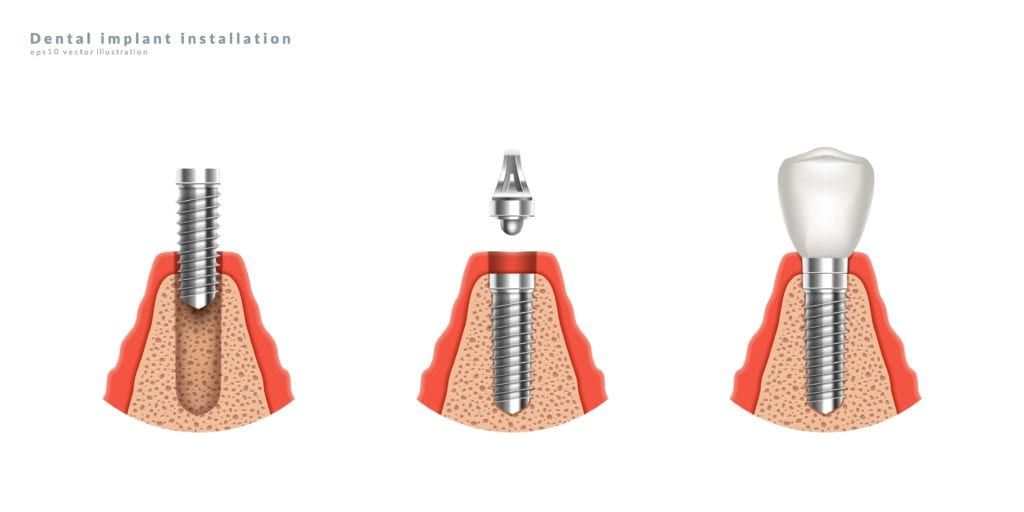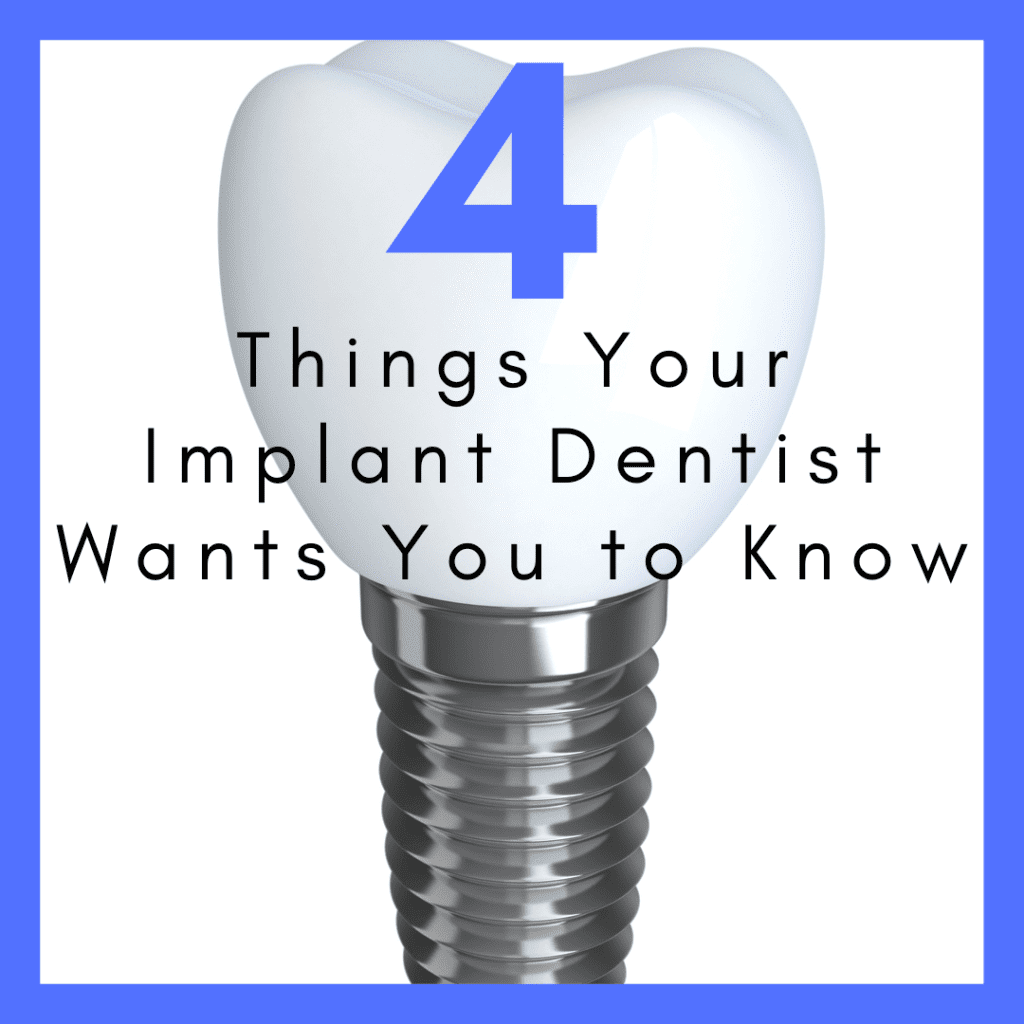Deciding whether or not to get dental implants is a big decision. There are numerous factors that you must consider to determine if dental implants are the right choice for you. Here are four things that your implant dentist wants you to know about dental implants:

There are Different Variations
There are two different types of dental implants and three different sizes available for dental implant. The two different types of dental implants are endosteal and subperiosteal. Endosteal implants are the most commonly used type of implant. They are composed of an implant screw that sits inside the jawbone, connector piece, and a dental prosthesis. Periosteal implants are composed of a metal framework that sits under the gums and on top of the jawbone.
In addition to the two different types of dental implants, there are three different sizes of endosteal implants. The most commonly used is the standard size, or the traditional implant. In addition to the standard size, there are also wide implants and mini dental implants. Wide implants have a larger circumference and are used when restoring a molar. Mini dental implants, sometimes called MDIs, have a smaller circumference and are used in tight spaces or when not enough bone mass is present to support a larger implant.

You Will Need Dental Surgery
Dental implants require a minor dental surgery in order to place them in the jaw. In preparation for the procedure, dental x-rays and a CBCT scan will be taken so the dentist can plan your treatment. This treatment plan will be discussed with you, as well as any preoperative guidelines.
During your implant placement procedure, you will be anesthetized and sedated to keep you comfortable and relaxed. If you have decayed or damaged teeth, these will need to be extracted prior to placing the implants. A small incision will be made in your gums to access your jawbone. Then, the tooth socket will be shaped to accommodate the implant screw. Once the implant screw is placed in the jawbone, the connector piece will be placed and the gums will be sutured. The connector piece will appear as a metal post above the gums. In some cases, a temporary restoration may be adhered to the connector piece.


You Need to Commit to Dental Implants
After your dental implants are placed, you will need to follow specific guidelines to ensure they heal properly. On average, it takes dental implants about 3-6 months to completely fuse with the surrounding bone. Until this happens, implants are lacking in strength and are susceptible to damage. Because treatment success is strongly dependant on patient compliance, you will need to commit to the implant procedure, as well as the recovery. Failure to follow the recommended guidelines can lead to implant failure or other complications. During the recovery process, it is important to keep the treatment site clean, eat soft foods, and practice daily dental hygiene.

You Need to Consider the Cost of Dental Implants
Dental implants have a higher upfront cost than other dental restoration methods, however they also last much longer than other methods. This means that although you’ll pay more for dental implants up front, you will most likely pay less over time than you would with other restoration methods that will eventually require replacement. It is also important to keep in mind that dental implants maintain the bone mass in your jawbone, which can reduce the need for additional procedures down the line. To help with the cost of dental implants, many dentists offer payment plans or financing options. In some cases, dental insurance plans may even offer partial coverage.
Ultimately, before you decide to get dental implants, you should consider the different types, placement procedure, recovery process, and cost. Considering these four important factors will allow you to determine if dental implants are the best treatment for you. You should also discuss these factors with your dentist for more specific information based on your individual treatment plan. Until then, to learn more see “Dental Implants”.

Michael C. Shuck graduated from the College of William and Mary with a bachelor of science in Biology. He received his Doctor of Dental Surgery (DDS) degree from the Medical College of Virginia, Cum Laude. He takes part in many volunteer outreach events, including Virginia’s Mission of Mercy project, Virginia Special Olympics, Give Kids a Smile, and the Jamaica Project. Dr. Shuck also is a regular volunteer at Williamsburg’s Olde Towne Medical Center. He actively participates with Virginia’s Donated Dental Service. Dr. Shuck has been a practicing dentist in the Williamsburg, Virginia area since 2007.


